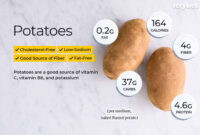Nutrition plays a crucial role in our overall health and well-being. It is the process by which our body receives and utilizes the nutrients required for proper functioning. Understanding how nutrition works is essential for making informed decisions about our diet and lifestyle choices. In this article, we will delve into the intricacies of nutrition and explore how it impacts our body.
Nutrition involves the intake of macronutrients and micronutrients. Macronutrients include carbohydrates, proteins, and fats, which provide energy to the body. They are required in large quantities and serve as the building blocks for various bodily functions. Micronutrients, on the other hand, include vitamins and minerals, which are essential for proper cellular function and metabolism.

When we consume food, it undergoes a process called digestion. During digestion, the macronutrients are broken down into smaller molecules that can be absorbed by the body. Carbohydrates are converted into glucose, which serves as the primary source of energy. Proteins are broken down into amino acids, which are crucial for tissue repair and growth. Fats are transformed into fatty acids, which play a vital role in hormone production and insulation.
The Role of Nutrition in Optimal Health
Nutrition is not only about providing energy to the body but also about supporting various bodily functions. A balanced diet that includes a variety of nutrients is essential for maintaining optimal health. Let’s explore the key roles nutrition plays in our well-being:
1. Energy Production
Carbohydrates are the body’s preferred source of energy. When consumed, they are broken down into glucose, which fuels our cells and organs. Without an adequate supply of carbohydrates, our energy levels may plummet, leading to fatigue and reduced physical performance.
2. Growth and Development
Proteins are the building blocks of our body. They are responsible for creating and repairing tissues, such as muscles, organs, and skin. Adequate protein intake is especially crucial during periods of growth, such as childhood, adolescence, and pregnancy.
3. Immune Function
Micronutrients, particularly vitamins and minerals, are integral for a strong immune system. They help protect against infections and diseases by supporting the production of immune cells and maintaining their optimal functioning.
4. Brain Function
Nutrition plays a vital role in brain health and cognitive function. Certain nutrients, such as omega-3 fatty acids and antioxidants, have been linked to improved memory, focus, and overall brain performance. A diet rich in these nutrients can help enhance brain function.
5. Disease Prevention
A well-balanced diet that includes a variety of nutrients can help reduce the risk of chronic diseases, such as heart disease, diabetes, and certain types of cancer. Nutrients like fiber, antioxidants, and healthy fats contribute to overall health and protect against various illnesses.
Creating a Healthy, Nutrient-Rich Diet
To ensure optimal nutrition, it is important to consume a diverse range of foods that provide a wide array of nutrients. Here are some tips for creating a healthy, nutrient-rich diet:
1. Eat a Variety of Fruits and Vegetables
Fruits and vegetables are rich in vitamins, minerals, fiber, and antioxidants. Aim for a colorful plate, including a mix of different fruits and vegetables to maximize nutrient intake.
2. Include Lean Proteins
Choose lean sources of protein, such as poultry, fish, beans, and tofu. These provide essential amino acids without excessive unhealthy fats.
3. Incorporate Whole Grains
Opt for whole grains like quinoa, brown rice, and whole wheat bread instead of refined grains. Whole grains are rich in fiber, vitamins, and minerals.
4. Limit Added Sugars and Processed Foods
Avoid excessive consumption of added sugars and processed foods, as they often lack essential nutrients and can contribute to various health problems.
5. Stay Hydrated
Drink an adequate amount of water throughout the day to support proper digestion, nutrient absorption, and overall hydration.
Understanding how nutrition works is crucial for making informed choices about our diet and lifestyle. By consuming a balanced, nutrient-rich diet, we can optimize our health, energy levels, and overall well-being. Remember to prioritize a diverse range of foods that provide essential macronutrients and micronutrients to support the body’s functions. By embracing healthy eating habits, we can lead a vibrant and fulfilling life.


